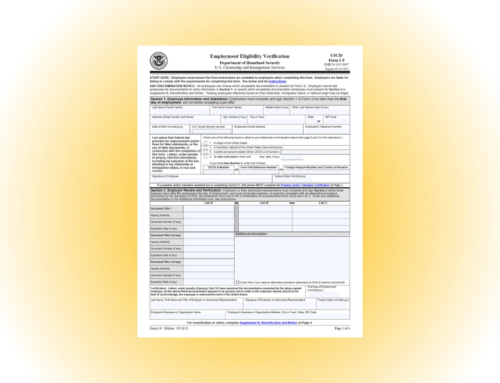Three states, including Illinois, Oregon, and Washington, have varying amendments to laws centered around noncompete agreements, which restrict employee job opportunities with competing businesses. Businesses operating in these states that enforce restrictive noncompete agreements should familiarize themselves with the changes below and revise template agreements to comply with the new requirements.
Illinois Adds Clarity to Freedom to Work Act
Beginning January 1, 2022, employers will need to comply with the amended Illinois Freedom to Work Act (IFWA). The law initially restricted the use of noncompete agreements with low-wage workers but will now extend the prohibition on noncompete agreements to employees earning $75,000 or less annually. The threshold will increase to $80,000 per year on January 1, 2027.
Additionally, noncompete agreements are now void when the employee is terminated or furloughed due to the COVID-19 pandemic unless the employee is paid his or her base salary for a period of time thereafter.
Washington Raises Earnings Thresholds for Workers
Washington increased the earnings thresholds for employees and independent contractors who are subject to noncompete agreements. Previously, the earnings threshold for employees was $101,390 and for independent contractors was $253,475.
In order for a noncompete agreement to be enforceable in 2022, the adjusted earnings threshold is $107,301.04 for employees, and $268,252.59 for contractors. The increase is part of an annual adjustment that is tied to inflation.
Oregon Modifies Enforceability Period
Oregon strengthened its existing restrictions on noncompete agreements by reducing the maximum enforceable length of a noncompete agreement from 18 months to 12 months. Changes also include a new formula for determining the compensation threshold in which noncompete agreements will be enforceable against employees whose gross annual salary and commissions exceed $100,533 annually. That figure will be adjusted annually based on inflation.
No Movement on Federal Noncompete Restrictions
According to the order, noncompete clauses are one-way companies stifle competition.
However, FTC commissioner, Christine S. Wilson, in a testimony before the House Judiciary Committee in September said there is “mixed evidence on the impact of non-competes” and “a federal solution at this time is premature.”
Washington State Department of Labor & Industries Non-Compete Agreements




